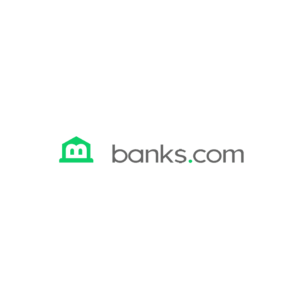Let’s review the considerations and process of opening a money market account, an interest-bearing, insured savings account that is offered by banks and credit unions and can be a great option if you want to save money for a specific purpose such as a home purchase or tuition. Compared to savings accounts, you usually need a greater minimum balance to open the account. Typically, the trade-off to this is a higher Annual Percentage Yield (APY), but recently this has not always been the case.
Recent market conditions have resulted in revised versions of money market accounts. There are a few accounts out there that you can open with $100 or less, but these offer lower APY’s. This has made the earnings of money market accounts similar to that of savings accounts. Additionally, like savings accounts, money market accounts are insured by the FDIC up to $250,000 per depositor per bank. For credit union accounts, the National Credit Union Administration (NCUA) provides similar insurance coverage ($250,000 per member per credit union, and $500,000 for joint accounts).
Interest rates on money market accounts are variable, so they rise or fall with inflation. How that interest is compounded—yearly, monthly or daily, for example—can have a substantial impact on the depositor’s return, especially if they maintain a high balance in their account. Unlike savings accounts, money market accounts offer some check writing privileges and also provide a debit card with the account, much like a regular checking account.
Four Times When You Should Open a Money Market Account
- When you have a significant of money to save or want to save for a big purchase (e.g., a house, tuition, etc.). They’re also great for setting money aside for emergency funds, or quarterly tax payments. An MMA should only be considered if you have a stack of cash that you want to earn interest from and that you won’t need to draw from much.
- When you want a relatively high APY (unless you can get a better rate with a traditional savings account)
- When you need more flexibility than a CD (certificate of deposit). CD’s have a higher APY but stricter limits on withdrawals.
- When you want to capitalize on rising interest rates. When interest rates go up, it’s often better to use an MMA account.
Things to Consider Before Opening a Money Market Account
Depending on your needs, a money market account could be better than a savings account. Consider these factors before opening a money market account.
1. Money Market Accounts Are Different To Money Market Funds
Though their names are similar, money market accounts differ from money market funds. Money market accounts are insured by the Federal Deposit Insurance Corporation (FDIC). If the bank crashes, the FDIC ensures you won’t lose your money.
Money market funds are offered by investment companies and brokerages, not banks. They are more of an investment product and are not FDIC insured. The money is then invested in fixed income securities, like the U.S. Treasury bill.
2. Money Market Accounts Are Beneficial To Banks
With savings accounts, banks keep a percentage of the money and use the rest to provide loans. Money market accounts are used by banks to provide companies with overnight loans. These companies return the loan with interest, earning you and the bank some money. In both cases, the bank rewards you with interest for giving them money to loan.
3. Money Market Accounts Don’t Always Offer High APY’s
In the past, MMAs tended to have higher APY’s than that of savings accounts, but now, many savings accounts have APY’s that outperform them. For example, compare the savings account and MMAs offered from online bank Ally. As you can see, they are equal in every respect except for the APY:
| Ally Savings Account | Ally Money Market Account |
| 1.25% APY (15x the national average as of 5/12/2020) | 0.75% APY |
| No monthly maintenance fees | No monthly maintenance fees |
| $0 minimum deposit to open | $0 minimum deposit to open |
| No minimum balance requirements | No minimum balance requirements |
| Interest compounding: Daily | Interest compounding: Daily |
| Monthly transaction limit: 6 | Monthly transaction limit: 6 |
| Fee per transaction over the limit: $10 | Fee per transaction over the limit: $10 |
| Insured by the FDIC | Insured by the FDIC |
There are still relatively high APY’s around, like the 1.70% offered by UFB Direct. But, to qualify for this interest rate you need a minimum deposit of $5,000. More importantly, that interest rate of 1.70% only kicks in on balances of $25,000 or higher. For balances up to $24,999.99, the APY is only 0.50%. This is a good reminder to always read the fine print on account terms and conditions! It’s a good deal if you already have a sum of money you want to save, otherwise a savings account would be better.
4. Money Market Accounts Offer Liquidity
Money market accounts have high liquidity. Liquidity is the ease of which you can access cash from your accounts and other assets. With money market accounts, you can write checks and have options like ATM or debit cards. But, transactions are limited to six each statement cycle and you will incur a fee if you exceed that limit. If you need greater access to your money than that, a high-yield checking account is better.
5. Money Market Accounts Are Great For Saving Down-payments
Money market accounts are excellent if you’re saving for a down payment to buy property. You’ll earn on interest without risking your money on an uninsured investment. Unlike with CD accounts, you can access the money when you need it. This saves you from having to time your property purchasing with when you can access your savings. You also won’t risk forfeiting a good property deal to the buyer next in line.
Money Market Account: The Bottom Line
At the moment there are not too many differences between savings accounts and money market accounts. MMAs offer ease of access to your funds, an FDIC-insured account, and check writing/debit card privileges. The downside are potential fees, minimum balance requirements, and monthly transaction limits. Despite that, they can be a great alternative to a savings account if their APY is decent.
When you’re ready to open a money market account, comparison shop for features that you want. Ask about fees, withdrawal limitations, balance requirements, check writing and debit privileges, minimum deposit to open an account and of course, the APY! If you’re married and/or have kids, you may also want to inquire if you can have a joint owner or a beneficiary And watch out for introductory interest rates. A fantastic promotional rate won’t mean much if it’s only temporary.






